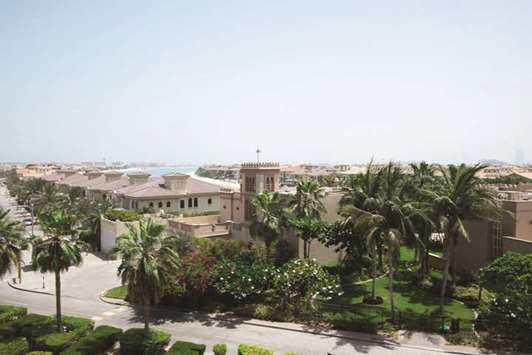Dubai residential property prices and rents are set to fall further as losses of high-paying jobs and dwindling household incomes boost vacancies across the city, according to Phidar Advisory.
“The false start of early 2017 is over and the cracks are starting to show,” Jesse Downs, managing director at Phidar, an advisory firm specialising in real estate, wrote in a report last week. “Sales volumes of completed properties are at a six-year low and vacancies are rising across the city.”
Prices of single-family homes, known locally as villas, slid 10.2% on average in the past 12 months, while apartment values remained unchanged. Villa rents dropped 4.9% while apartment leases fell 3.4% in the period, Phidar said.
Owners who had resisted lowering prices or rents while awaiting a rebound in 2017 are starting to accept the reality of an extended downturn. Job losses, disproportionately among high earners, have resulted in vacancies across many of the city’s established developments and households are downsizing, further pressuring the market.
Dubai’s residential market is overvalued by around 15% to 20% but it “may or may not correct to this value, depending on power of sentiment and exogenous factors,’’ Downs wrote.
The diversion of apartment prices and rents is eroding yields and indicating further corrections are on the horizon, Downs wrote. The current vacancy rate stands at around 35% in preferred communities sampled while builders continue to add to the city’s supply, Downs said.
Advance sales are holding steady as developers offer buyers the chance to pay 40% to 60% of a property’s value after its completion. Some also are waiving the 4% transfer fee as a further incentive. Downs said that may harm the market.
“Subsidies in the form of post-handover payment plans, which equates to shadow financing will likely lead to overbuilding,’’ he wrote.

Luxury residential properties by real estate developers Nakheel sit on the Palm Jumeirah fronds in Dubai (file). Job losses, disproportionately among high earners, have resulted in vacancies across many of the city’s established developments and households are downsizing, further pressuring the market.
